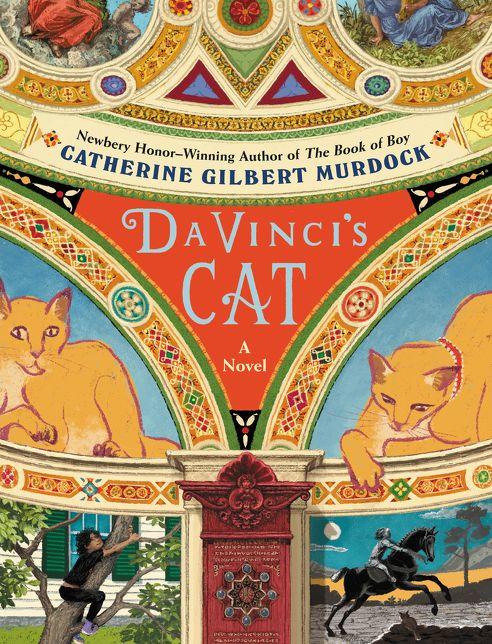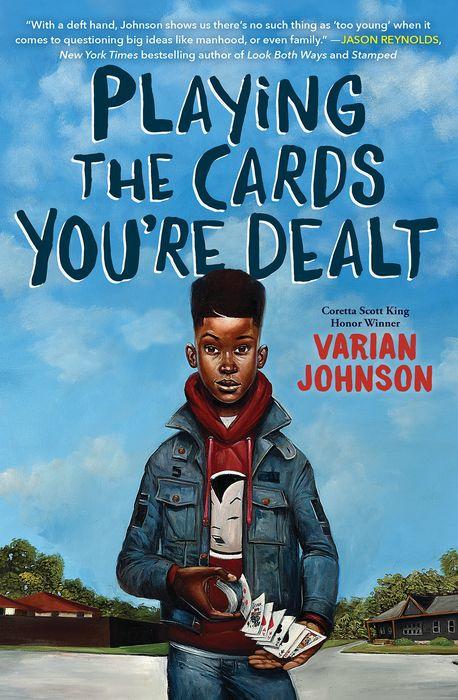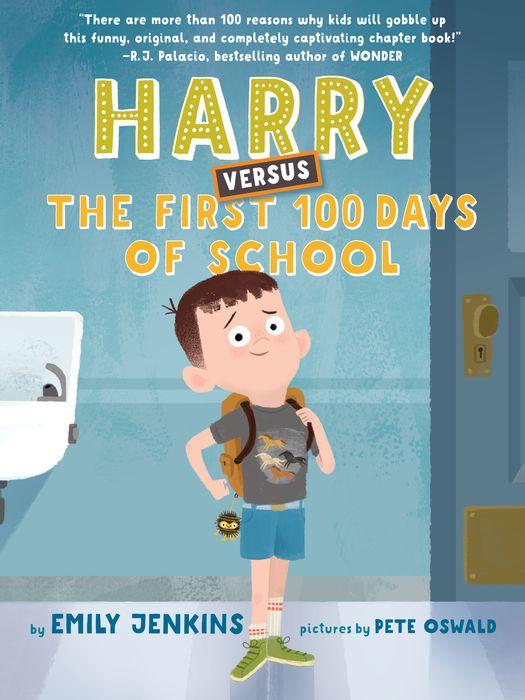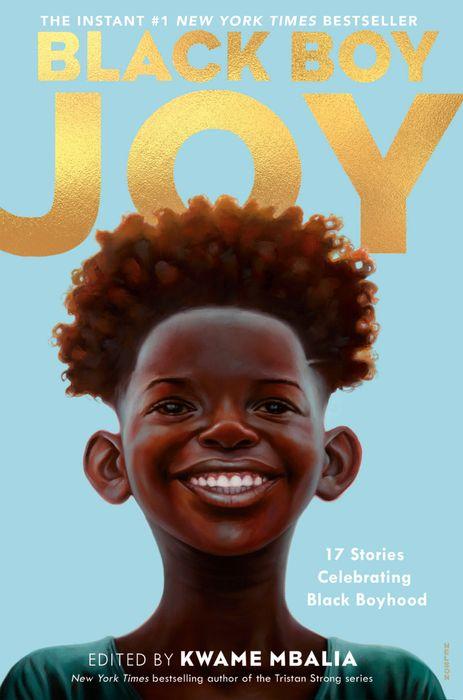It’s that time of year when librarians across the nation eagerly await the announcement of the American Library Association’s Youth Media Awards, crossing fingers for their own favorites. At Redeemed Reader we’ll soon be mulling over likely contenders in our annual round of Newbery Buzz discussions. There are always a few we can’t get around to talking about, which, because of high visibility, deserve some attention. Here’s the first crop:
DaVinci’s Cat by Catherine Gilbert Murdoch. Greenwillow (HarperCollins), 2021, 274 pages.


Frederico lives a privileged life in Rome, where he’s a guest—actually, a hostage—of the pope and serves as an unofficial page. He has befriended the artist Raphael (who’s friends with everybody), and perhaps even Michelangelo (though “tolerated by” might be a better term than “friends with”). But Frederico misses his parents and siblings back in Mantua and his noble station keeps him from familiarity with the servants. When a stray kitten emerges from a closet in the corner, Frederico forges an instant bond. He’s almost desolate when the kitty disappears, but soon it’s back, this time as a full-grown cat. The next time the cat emerges from the closet, it’s in the company of a middle-aged man from New Jersey. You guessed it: the box is a portal between times and places, an explicit tribute to a certain Narnian wardrobe. Juno, the cat, will thread other lives and times into Frederico’s, most notably Beatrice (Bee), a girl of his own age from our own time. The story nicely weaves themes of art, beauty, charity, and consequence, but lacks a certain narrative drive. And Bee’s two moms are introduced in a way that’s laughably anachronistic:
“You have two mothers?”
“We’re like any family. We have breakfast together and Moo makes my lunch and Mom walks me to school . . .”
Frederico just stood there. She could almost see his brain whirling, he was thinking so hard. “Which one has the dowry? . . . Which of your mothers brought wealth to their marriage?”
That’s the first issue raised by a same-sex marriage? Which partner brings the money? Renaissance marriages among the wealthy were certainly conducted in a manner foreign to us, but you’d think two moms would be even more foreign to the 13th-century mind.
What are its chances? The author Catherine Murdoch won Newbery honors in 2019 for The Book of Boy, but Cat is not, to my mind, noteworthy enough to catch fire this year.
Playing the Cards You’re Dealt by Varian Johnson. Scholastic, 2021, 309 pages.


Anthony Joplin, better known as Ant, has a lot to live up to, mainly his dad’s expectations. His brilliant older brother, now away at a fancy boarding school, has already achieved that regard. Now it’s Ant’s turn, and he’s stepping up to the Joplin man’s ideal of card-playing magic. He’s going to win the neighborhood Spades tournament with his best friend Jamal and walk away with a trophy and a cash prize. Dad’s been coaching him, but Dad seems distracted lately. Playing cards on his laptop—gambling? Not showing up in time for dinner—drinking? Again? To make things worse, there’s a new girl in Ant’s class who’s just as good at cards, but Jamal seems to dislike her as much as Ant feels the opposite. He can’t change partners now, even though Jamal is acting more hostile and Dad is acting more irresponsible.
The plot is a bit thin, but there’s a lot of emotional resonance and an unusual use of voice. The narrator is unknown until near the end, but his sympathy for the protagonist is obvious (“Here’s the thing—Ant was a ten-year-old trying to solve grownup peoples’ problems”). Throughout, we see the dilemmas of clashing loyalties, but by the end Ant has fully claimed his double-digit years. What keeps us from endorsing it is one gratuitous LGBT reference, as one significant character hints that he is gay.
What are its chances? Playing Your Cards has a decent shot, but Varian Johnson’s The Parker Inheritance was a stronger contender in 2019 and didn’t win. So I would say no.
Harry Versus the First 100 Days of School by Emily Jenkins, with pictures by Pete Oswald. Ann Schwartz Books (PRH), 2021, 240 pages.


Harry Bergen-Murphy has all his supplies, plus a too-short haircut and the latest Fluff Monster accessories. But he’s NOT ready for first grade. What about the rules? And the lines? And the bullies, mean teachers, and scary classroom pets? His teacher Ms. Peek-Schnitzel seems okay, but even after navigating the first few days Harry is still NOT ready. Only during the second week does he begin to find some reliable friends, to trust his teacher, and to define a first-grade goal: to become an expert. In anything.
Harry is a delightful character and his story unfolds in a leisurely, friendly way that should reassure children with similar fears. A Jewish kid in Brooklyn with (amicably) divorced parents may not appear to have many similarities to an Evangelical kid in Kansas with an intact family, but his anxiety at the next big step in growing up are relatable the world over. During his first 100 days he’ll learn not to fear guinea pigs, not to pronounce a silent “e” and not to define all family circles by his own, because of course, some of his classmates have two moms, two dads, or none at all. Nontraditional families are almost de rigueur in kids’ books today, but Harry goes a woke step further when the classroom discusses Thanksgiving. Ms. Peek-Schnitzel explains about the Pilgrims, but must also add that their arrival was a sad day for the Natives. So then the class must spend some time being sad about that before they can be thankful (like, for their schools and neighborhoods and families enjoying the good life on “stolen” land). (Sigh.)
What are its chances? Emily Jenkins is the author of the popular Toys Go Out series, but has never won an ALA award, so she may be due. Harry Versus the First 100 Days of School has received four starred reviews, as many as any in this star-shy year. Chapter books targeted for ages 5-8 don’t usually receive much consideration, but Kevin Henkes’ The Year of Billy Miller snagged a Newbery Honor in 2014, and I’d lay odds Harry has a chance at that too.
Black Boy Joy: 17 Stories Celebrating Black Boyhood by Kwame Mbalia. Delacorte, 2021, 320 pages


Seventeen black authors contributed to this volume, some of them quite well known, like Jason Reynolds, Varian Johnson, and Jerry Craft. With so many different authors and genres (sci-fi, fantasy, realism, humor), the quality and interest level is uneven. But true to the title, all are in some degree celebratory. Fathers and grandfathers are major characters in many of the stories, and the importance of family is a recurring theme. The continuing influence of the black church shows up as well, as when a grandpop answers his grandson’s question about the greatest superhero with, “Jesus, of course.” And then goes on to list the best secondary superheroes. White boys (and girls) will enjoy much of the content, but one story to avoid is “Gender Reveal.” The protagonist, wondering whether to come out as nonbinary (a term he has to explain to his supportive grandmother), finally makes his big reveal at a school dance wearing a splashy train along with his tux. Like most “conversion” stories, this one smacks too much of agenda to have outstanding literary value.
What are its chances? For a Coretta Scott King award, excellent. For the Newbery, its appeal to a specific audience makes it less likely.
Next Week: Four more Newbery buzz books, with my invaluable predictions!
Stay Up to Date!
Get the information you need to make wise choices about books for your children and teens.
Our weekly newsletter includes our latest reviews, related links from around the web, a featured book list, book trivia, and more. We never sell your information. You may unsubscribe at any time.
Support our writers and help keep Redeemed Reader ad-free by joining the Redeemed Reader Fellowship.
Stay Up to Date!
Get the information you need to make wise choices about books for your children and teens.
Our weekly newsletter includes our latest reviews, related links from around the web, a featured book list, book trivia, and more. We never sell your information. You may unsubscribe at any time.
FREE Bible Guide!
Get a guide to the Best Bibles for Children and Teens. Perfect for an Easter gift.
We'd love to hear from you!
Our comments are now limited to our members (both Silver and Golden Key). Members, you just need to log in with your normal log-in credentials!
Not a member yet? You can join the Silver Key ($2.99/month) for a free 2-week trial. Cancel at any time. Find out more about membership here.
3 Comments
Leave a Comment
You must be logged in to post a comment.


Thanks for this roundup, Janie! These were all books on my radar this year, too, but I haven’t gotten to actually read them yet! I had Black Boy Joy out from the library several times, and I really enjoy the other three authors’ writing styles, too.
Janie! I have to say this helps me navigate my children checking out library books, I have 7 children and I cannot review all of the choices, this helps so much!
Rachel–Thanks for the kudos! This is exactly why we’re reading ahead for you.